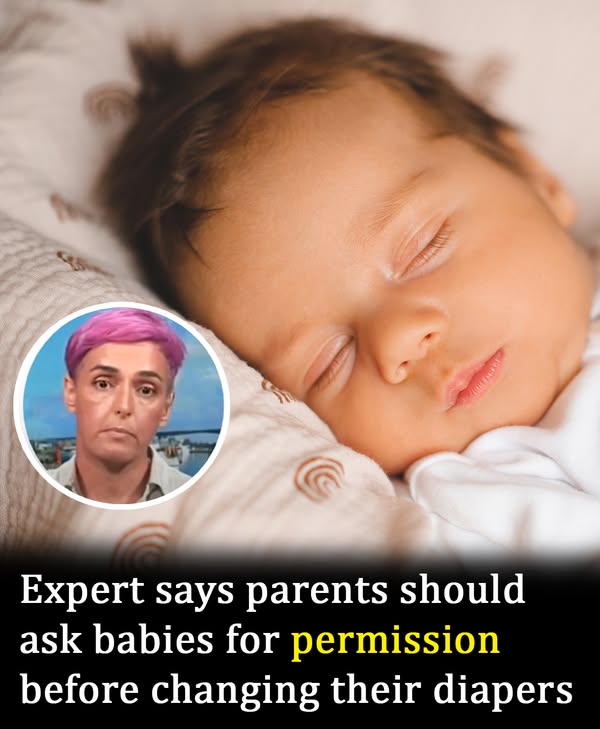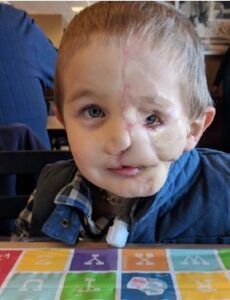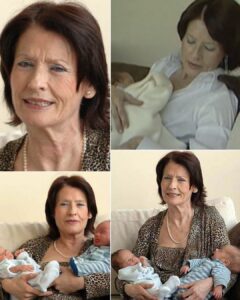An Australian sexuality educator, Deanne Carson, has sparked a heated debate online with her suggestion that parents should ask babies for consent before changing their diapers. This controversial idea has left many people questioning the practicality of incorporating such a concept into parenting, especially when it comes to infants who cannot verbally communicate.
 Baby changing. Credit / Shutterstock
Baby changing. Credit / Shutterstock
The ‘Culture of Consent’
Deanne Carson advocates for a culture of consent to start from birth. As a sexuality educator and author, she believes that introducing the concept of consent early on can help teach children about respecting their own bodies and personal boundaries. Carson proposes that when changing a baby’s diaper, parents should say something like, “I’m going to change your diaper now, is that okay?” and then pause to observe the baby’s body language and responses.
This approach, according to Carson, isn’t about receiving a verbal “yes” from the child but instead about fostering communication between the parent and child. “If you leave a space and wait for body language and make eye contact, you’re letting that child know their response matters,” she said in an interview with Australia’s ABC network. This practice aims to establish trust and communication between the child and the caregiver, even though infants can’t verbally communicate their consent.
 Mother changing her baby’s diaper / Credit: Shutterstock
Mother changing her baby’s diaper / Credit: Shutterstock
Raising the Conversation on Consent
The idea has garnered significant attention, especially on social media, with many questioning whether asking for consent is necessary or even realistic for babies. Some pediatricians and early childhood experts emphasize the importance of responding to non-verbal cues from infants, such as coos, movements, or facial expressions. Carson’s idea aligns with this by encouraging parents to observe their baby’s responses and respect their body language, even if it’s not in the traditional sense of “asking for consent.”
Criticism of Carson’s Approach
Not everyone agrees with Carson’s approach. Critics argue that asking for consent from a baby is not only impractical but also unnecessary. Rowan Dean, the editor of The Spectator Australia, labeled the idea as “lefty lunacy,” while psychologist John Rosemond described it as one of the “most bizarre ideas of all time.” Many critics question the logic of expecting an infant to understand or respond to such a concept, pointing out that babies are not capable of making decisions about their bodily autonomy at such a young age.
On social media, people have mocked Carson’s suggestion, with one user commenting, “Pretty sure when a baby is crying due to the discomfort of a full diaper…that’s consent. In fact, I would go further and call it a demand.” Another added, “Do you need to get consent from your cat to change its litter tray? No. If it stinks, just change it. Same with a baby.” These responses highlight the skepticism surrounding the idea and reflect the practical reality many parents face when changing diapers.
”
Support for Carson’s Intentions
Despite the backlash, some people have defended Carson’s intentions. They argue that her primary goal is to encourage a conversation about consent and respect, even if the example may seem extreme. One supporter wrote, “I’m seriously shocked at the negative response… babies [and] toddlers learn to communicate well before they can speak. Thank you for tolerating the trolls to create dialogue about this.”
Others have noted that while babies can’t truly give consent, being mindful and communicative with them is still beneficial. “I think she wants to encourage a conversation about consent amongst kids but has made a mockery of it by taking it to the extreme. Babies can’t consent to anything,” one commenter said. Another echoed this sentiment, “I agree with Deanne Carson. Easy to chat with your baby. Easy to create a climate of consent in your home.”
A Shift in Parenting Styles
This debate raises important questions about parenting styles and the evolving ways in which parents approach consent and communication with their children. While some see Carson’s suggestion as a valuable tool for teaching respect from a young age, others believe that it’s enough to simply observe and respond to a baby’s needs without focusing on the concept of consent at this stage.
Ultimately, the decision to incorporate the idea of asking for consent when changing diapers may come down to individual parenting preferences. For some, it may be a helpful way to nurture a respectful relationship with their infant. For others, it may feel unnecessary or impractical.
Conclusion: Respecting Children from Birth
While Carson’s suggestion to ask for a baby’s consent before changing a diaper has sparked controversy, it has also opened up a broader discussion about respect and communication in parenting. At its core, the conversation is about how parents can raise their children to understand boundaries, even from a young age. Whether or not parents choose to follow Carson’s advice, the underlying message of respect for the child’s body and autonomy is something many can agree with.
What Do You Think?
What’s your take on the idea of asking a baby for consent before changing their diaper? Do you think it’s an important practice to introduce at an early age, or do you believe it’s unnecessary? Share your thoughts in the comments below and don’t forget to share this story to hear what others think!
For more parenting insights, check out:
- Man Loses 360 Pounds Naturally, Internet Rallies to Support His Next Step
- Tammy Hembrow’s Bikini Photos Stir Controversy: Here’s Why Everyone’s Talking
This conversation highlights the importance of considering how we can be more mindful and respectful in our interactions with children, starting from the very beginning of their lives.



